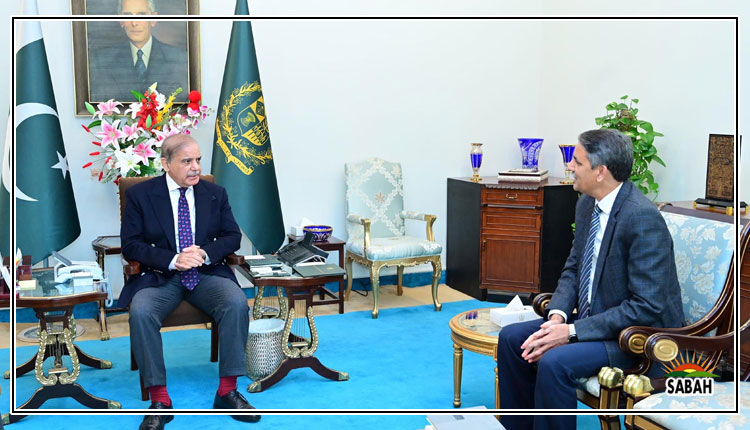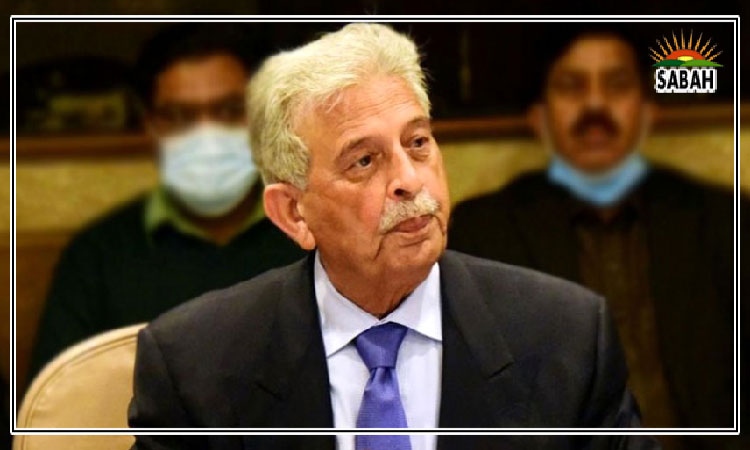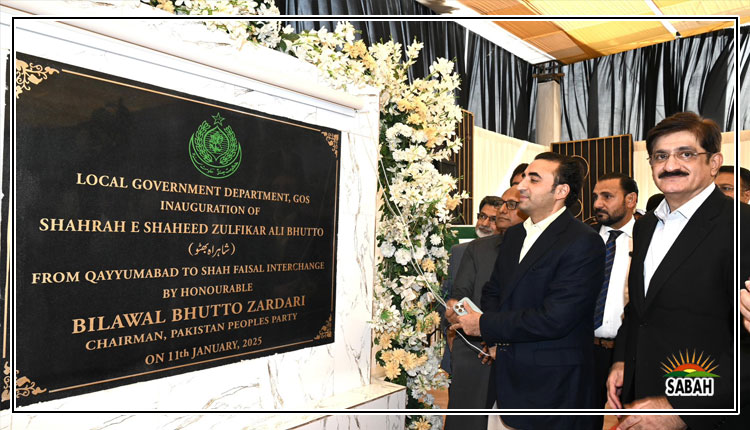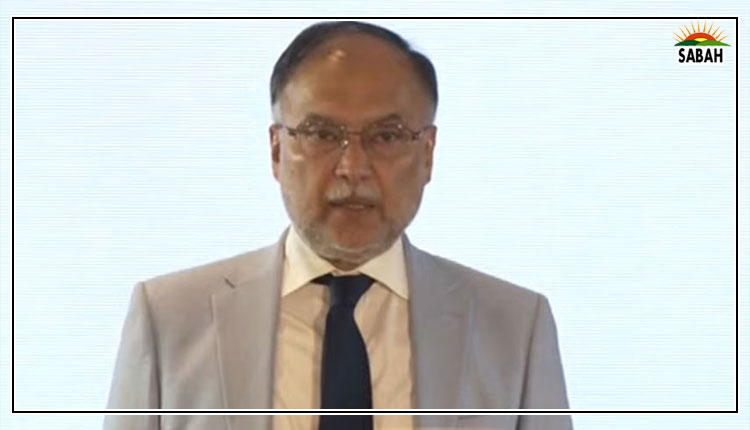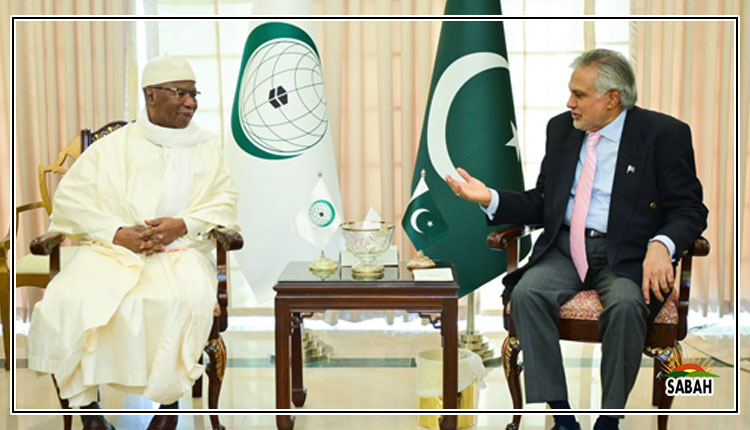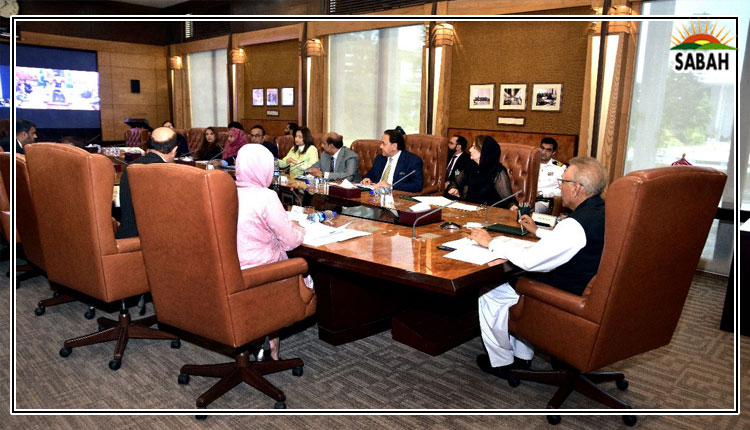President Alvi for implementation of job quota for differently-abled in govt & private sector
ISLAMABAD, June 08 (SABAH): President Dr. Arif Alvi has emphasised the need for the implementation of job quotas for persons with disabilities (PWDs) in the government and private sectors of the country so as to make them financially empowered and include them in the mainstream of society. He said that almost 12-14% of the country’s population comprised of PWDs and steps should be taken for their skill development as well as job placement in the public and private sectors.
President Dr. Arif Alvi expressed these views while chairing a follow-up meeting on the rights and facilitation of persons with disabilities (PWDs), at Aiwan-e-Sadr on Thursday. The meeting was attended by representatives of the provincial governments, including Gilgit-Baltistan and Azad Jammu and Kashmir, as well as the senior officials of the Ministries of Human Rights and Federal Education and Professional Training.
The representatives of the provincial governments apprised the meeting about the steps taken by them for the education of persons with disabilities, teacher training, curriculum development, skill development, job quotas, and job placement in different fields. It was informed that NAVTTC had enrolled almost 1700 differently-abled people (DAPs) to equip them with different skills, besides providing them with free transportation and boarding facilities. Ministry of Federal Education and Professional Training (M/o FE&PT) informed that training modules for teachers had been developed to inculcate attitudinal sensitivities in them towards students with disabilities and enable them to cater to the special educational needs of PWDs. It was further apprised that M/o FE&PT would train 1000 teachers in this regard. The representatives of provinces shared information regarding the total number of registration centres in their respective provinces and the number of registered PWDs in each region, apart from briefing the meeting on the implementation of reserved quotas for PWDs by their respective governments.
Addressing the meeting, the President urged the country’s private sector to provide jobs to persons with disabilities (PWDs) as per their skill-set, in different sectors of the economy, especially in the banking, industries, services and manufacturing sectors. He added that provinces had enacted laws which provided for the employment of persons with disabilities in all public and private sector establishments, adding that the business community should be sensitised about the rights of persons with disabilities.
President Dr. Arif Alvi stressed that no student with a disability should be refused admission in any school of the country, adding that schools should have an adequate number of teachers to impart education to PWDs. He also called for imparting training to teachers to effectively educate students with disabilities in different schools of the country.
The President appreciated the efforts of the Ministries of Human Rights, Federal Education and Professional Training, and Special Education departments of different provinces in imparting training to teachers and master trainers to cater to the special needs of students with disabilities. He said that the national and provincial government should share their best practices with each other and work for ensuring the rights of PWDs.
Meanwhile President Dr. Arif Alvi on Thursday called upon the universities to play an active role in preventing intolerance, extremism, and violence in society, particularly among students, and guide them towards a positive mindset.
The universities, President Dr. Arif Alvi said, should arrange regular capacity-building training sessions for their management and faculty members to inculcate in students the ability to address extremism.
Addressing the National Vice Chancellors’ Peace Conference, the president said banning the students’ unions in universities was not a solution and stressed that there was a need to change their mindset through proper teaching methodologies.
He said such measures would ensure the reformation of students to help them contribute towards the country’s better future, sustainable peace and prosperity.
President Dr. Arif Alvi emphasized the need for research-based learning and said equal opportunities should be given to students and women in the field of education.
Keeping in view the rapid development of modern technology in every sector, President Dr. Arif Alvi said usage of modern technology was inevitable in current scenario, which he said was vital to meet the advancement of the contemporary world. He said promoting good values and morality in the society was need of the hour.
He also pointed out the phenomenon of the “invasion of fake news” across the globe, which he said needed to be addressed on priority.
President Dr. Arif Alvi said highly educated IT graduates should be prepared to meet the growing needs of current and future requirements. Expressing gratitude over the participation of large number of women in the conference, the president said women’s role was significant in educating and training the future generations.
He urged sensitizing the society on creating opportunities for educated women to help them work according to their abilities. President Alvi stressed the need for promoting ethics, morality, empathy, forgiveness, and tolerance among students and society.
He asked the students not to indulge in activities that caused stress among them. The president hoped that the challenging times would pass soon and the country would witness exponential growth within five to seven years. The country will stand on a strong footing again, he said.
The two-day conference was jointly organized by Higher Education Commission (HEC), Pakistan, National Counter-Terrorism Authority (NACTA), and Shaoor Foundation for Education and Awareness (SFEA).
The conference themed “Academic Discourse on Countering Extremism – The Way Forward” is a significant milestone in the implementation of the Peace, Advocacy, and Community Engagement through Transformation (PACT) for Tolerance project, which is built on a foundation of collaboration and cooperation between SFEA, HEC Pakistan, NACTA, and other policy-level stakeholders.
Chairman HEC Dr. Mukhtar Ahmed, sharing his thoughts on the issues within society, said that conflict permeated various sectors of society including families, and deserved a collaborative and coordinated response.
Apart from teaching, he said, as a beacon of knowledge and enlightenment, the universities had the responsibility to foster responsible citizenship and produce good human beings.
Highlighting the importance of youth in the society, Member NACTA Muhammad Iniksar Khan highlighted the role of youth in policy-making for sustainable peace and preventing extremism in the society. Founder SFEA Syed Ali Amir said youth were the asset of the society and their abilities needed to be explored and utilized.



